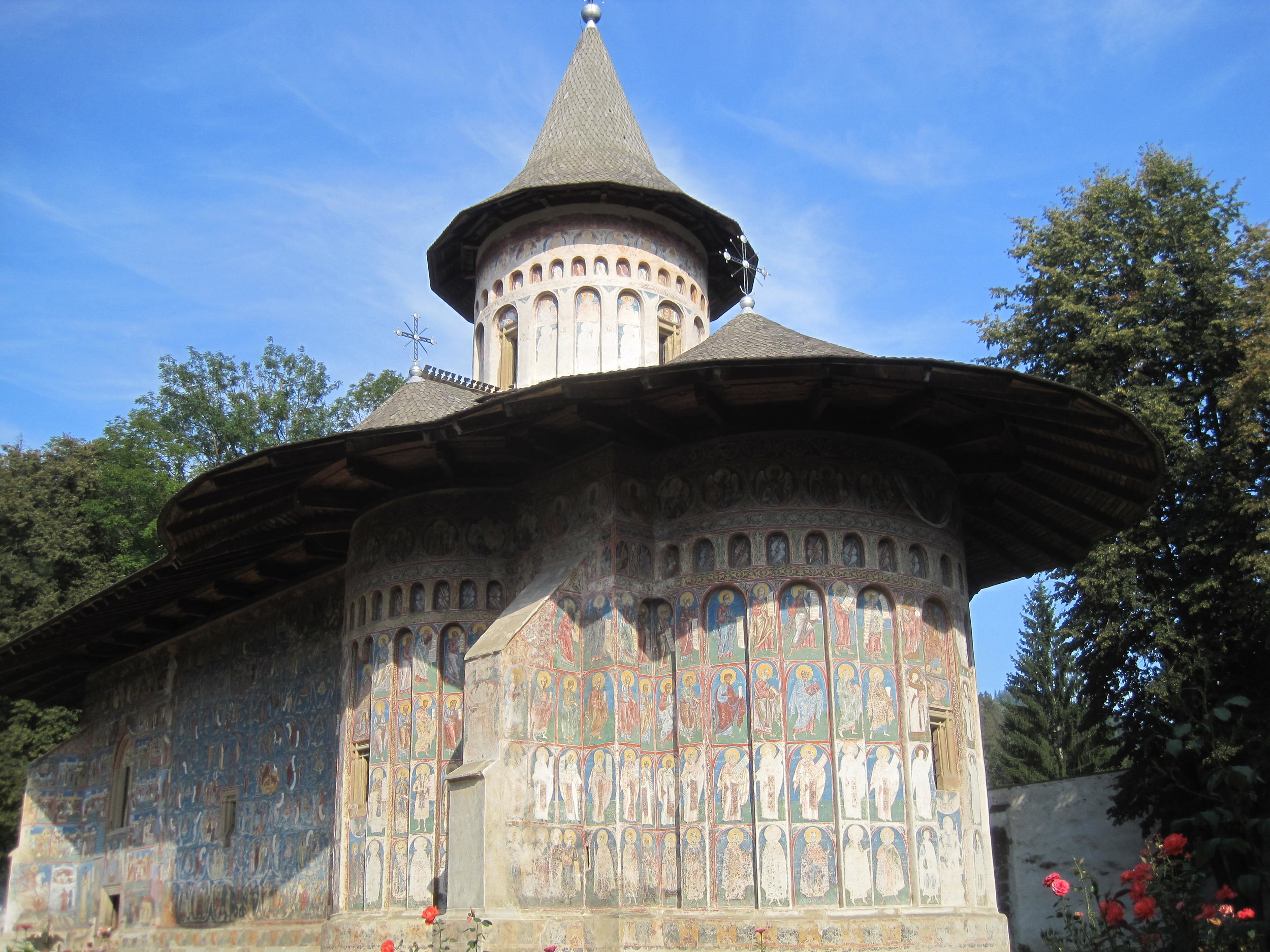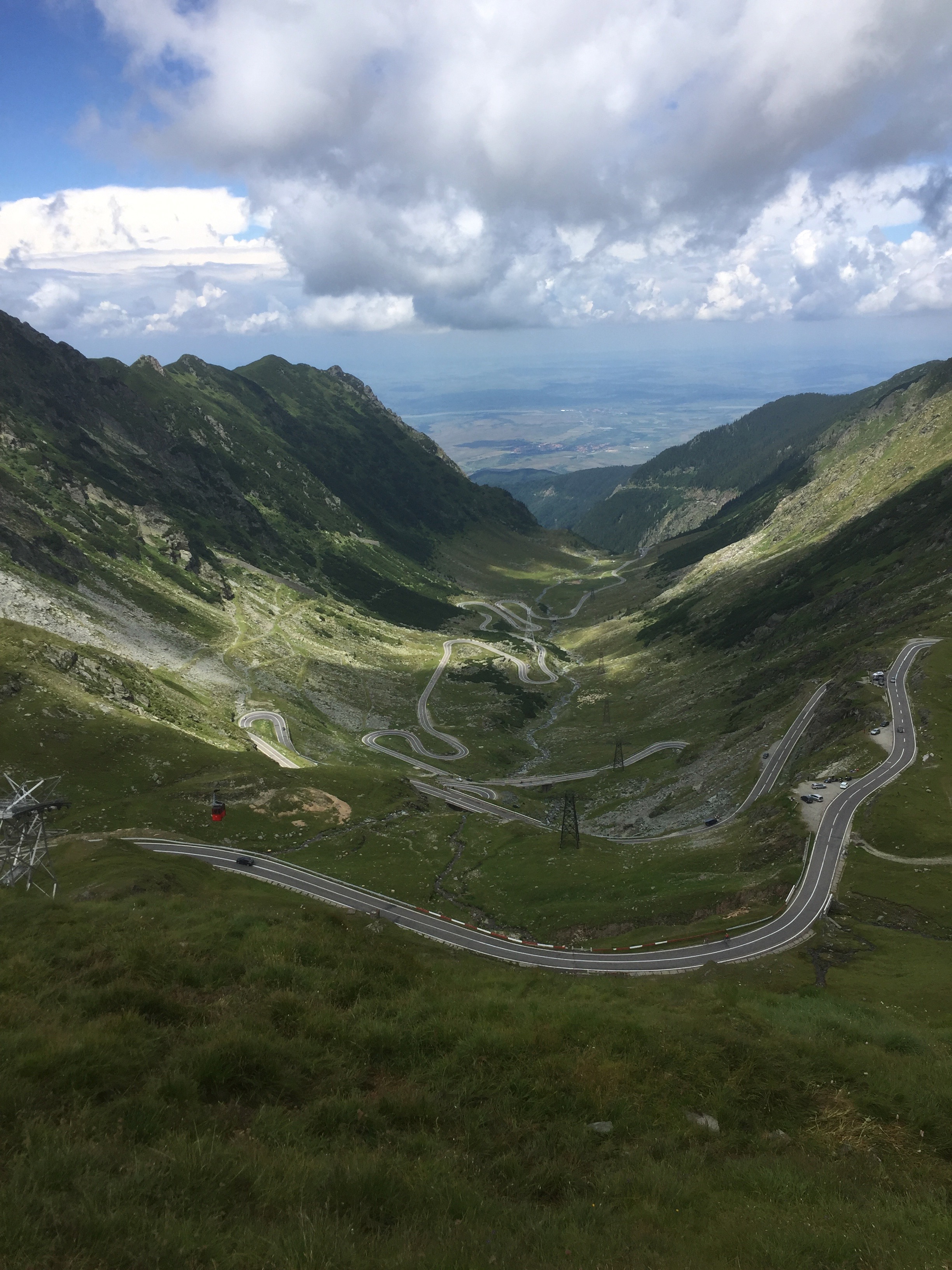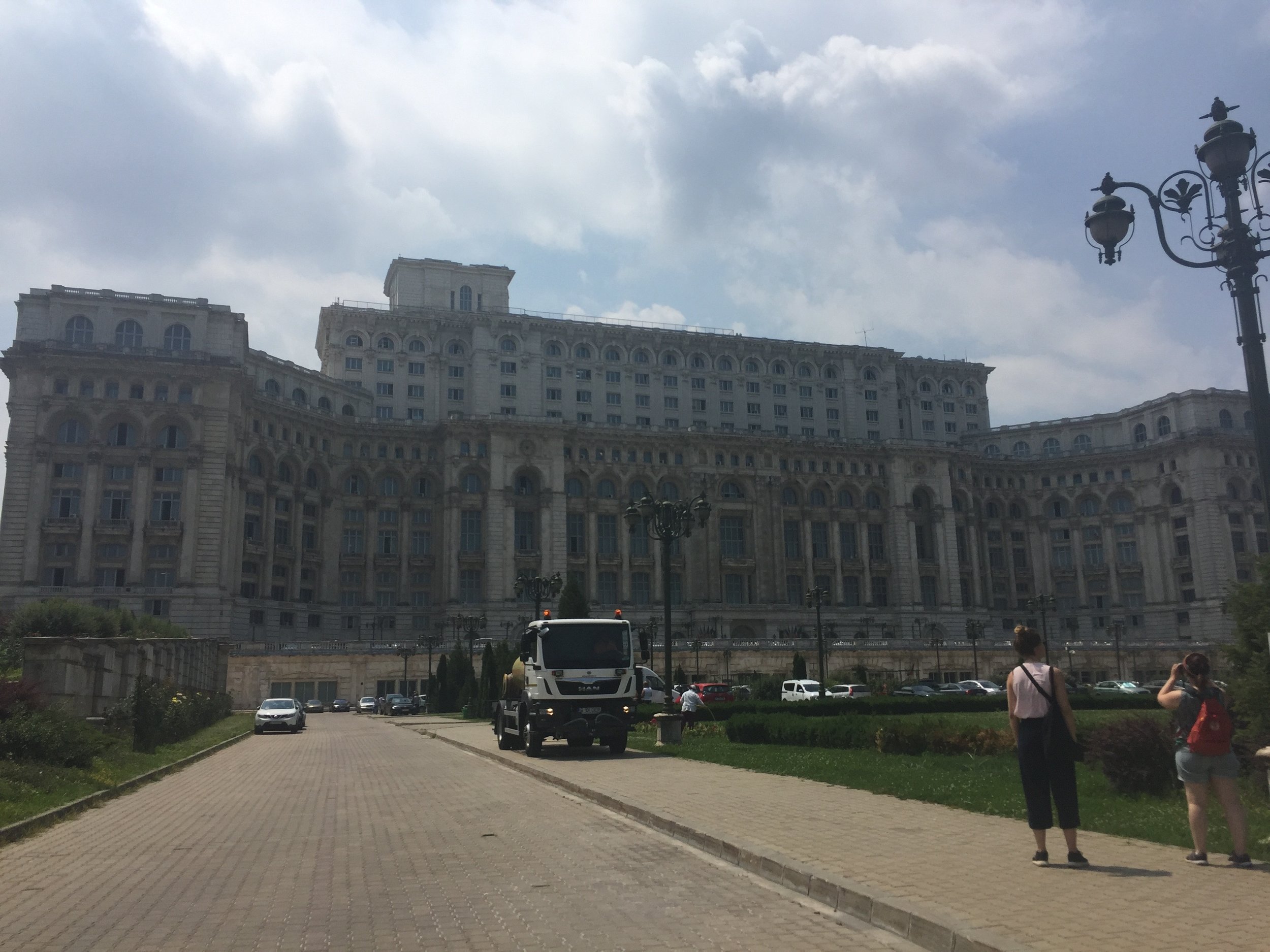BY LIZ SKOKAN
Liz Skokan is an International Development student in her second year. This past summer she interned with the U.S. Embassy in Bucharest, Romania. She hopes to enter government service upon graduation.
The IDEV Summer Internship Series highlights the experiences of IDEV students participating in internships this past summer. Each year, IDEV students intern with various development organizations around the world. These internships are generously funded by SAIS donors, and offer valuable opportunities for students to gain real-world experience between their first and second years at SAIS.
Conventional wisdom is that summer is not the best time for an internship. While it may be convenient, summer internships do not have as much an opportunity for substantive work. This tends to be even more true for government internships. However, this could not be further from the truth for me. So far, my time at the U.S. Embassy in Bucharest has been engaging and informative, a much better environment than what I have experienced at other internships. To be fair, it does help that I am a graduate student, from a school like SAIS, as it leads to a more meaningful experience compared to undergraduates.
I have been able to attend meetings at the Embassy and offices of outside organizations, write up short pieces on developments in Romania’s economy, and drive my own research on cable topics that I think are important to Romania’s future, such as the future of smoking bans in Romania and Romania’s development as it compares to USAID recipients. Contrary to popular belief, my work in the economic section covers more than numbers; it really is a catch-all, ranging from energy to cyber, tourism to nuclear issues. There is something for everyone in the economic section.
Romania is a contradiction in many ways. It is within the European Union (EU), but has numerous areas with no electricity or plumbing. It is a participant in the OECD Development Assistance Committee, yet it also receives over €30 billion (between 2014-2020) from structural and investment funds, second only to Poland in Central and Eastern Europe. Am I working on development issues here? Most definitely. I am looking at development through a wider lens; seeing the problems that occur when a country is judged by its sum rather than its components. It is difficult to get this work addressed, as when we discuss development, Romania is above the threshold of the lowest common denominator, but below where many imagine EU members to be. And while I am all for raising that lowest common denominator, we shouldn’t neglect countries that, despite our perceptions, still have a long way to go. There needs to be balance, and I am observing and learning that fine art here in Bucharest.
One of the reasons I decided to attend SAIS was to hone my quantitative skills, and these have been put to good use in this internship. Reading reports by external organizations and internal cables brings me back to Professor Arroyo’s class and BPM6, which Romania certainly is using! Reading graphs and analyses with low R2s and looking at statistical significance, I find myself thinking about Professor White and his goose analogy.
Every day I come into the Embassy not sure of what I will find, but I know the goal is the same: I’m working toward improving U.S.-Romanian cooperation, development, and security of a country that has only been around for 100 years. I’m refining my writing skills more than ever, as I doubt I will ever write more ten-page academic papers after graduation. Government writing is a much different challenge, and I am happy that I have this summer to tackle it. So far, the internship here in Bucharest has been amazing, and I wouldn’t change a minute of it. I cannot recommend a State Department internship enough, because development of other countries is a goal of the U.S. government, and its implementation across agencies is something that is best experienced first-hand.
Photographs in header and gallery below by author from her time in Romania.




